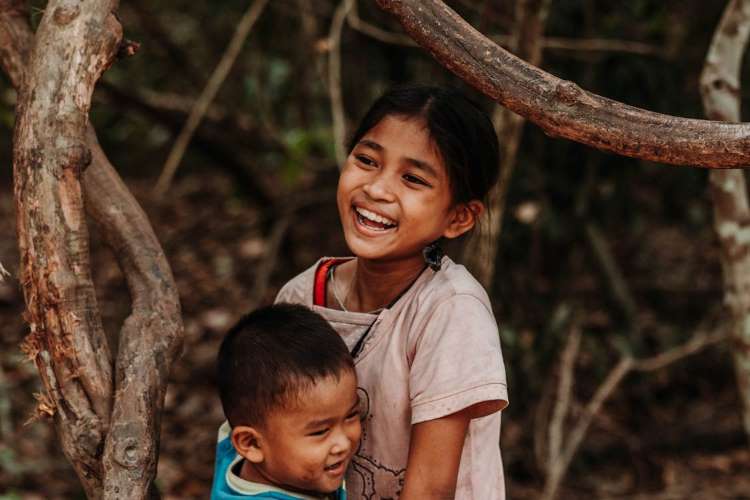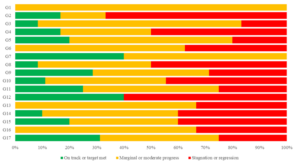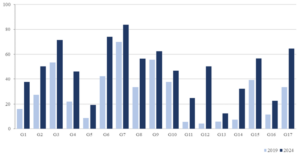
With the 2030 deadline looming, it is evident that the current pace of progress is insufficient to meet the sustainable development goals. Particularly alarming is the fact that the Global South, encompassing much of the Asia-Pacific, Africa, and Latin America, is bearing the brunt of climate change, poverty, and food insecurity, all of which are linked to the SDGs. To change the trajectory, the Global South must take a leading role in driving the effort to achieve these ambitious goals.
The Global South is uniquely positioned to spearhead the achievement of the SDGs because it is where the stakes are highest. The Asia-Pacific region, for example, is facing unprecedented climate-related hazards that threaten decades of progress in reducing poverty and hunger. Severe droughts, floods, and heatwaves are increasingly straining environmental and socio-economic systems, pushing millions into deeper poverty and exacerbating food insecurity.
The UN’s recent report highlights these challenges which are most acutely felt by the poorest and most vulnerable communities, including women, children, and Indigenous peoples. This region is also faltering on the SDGs, with projections indicating that 90% of the 116 measurable targets under the 17 SDGs set for 2030 will be missed if current trends persist. The challenges of climate change, poverty, and hunger make it clear that addressing these issues together is not just necessary but urgent.
READ I National Sample Survey: A health checkup for data quality
Global South lagging on SDGs
The Global South should take the lead in achieving the SDGs for several reasons. First and foremost, the region’s direct exposure to the harshest impacts of climate change makes its involvement in global solutions critical. The burden of climate impacts is unevenly distributed, with poorer countries and communities far more vulnerable and less able to adapt. The urgency of the situation provides the impetus for countries in the Global South to lead, innovate, and implement solutions that are directly responsive to the needs of those most affected.
The rapid rise in global temperatures, producing record-breaking heat in major cities across the region, serves as a stark reminder of what is at stake. The region is getting its first glimpse of a future where global temperatures rise beyond the climate tipping point of 1.5°C, leading to severe consequences for environmental and socio-economic systems.
Progress assessment for 17 SDGs

Countries in the Global South possess valuable local knowledge and practices that can be scaled up to address SDG challenges. Several nations in the Asia-Pacific, for instance, have already begun integrating social protection into their nationally determined contributions (NDCs) under the Paris Agreement. Cambodia has mainstreamed gender and social inclusion into its NDC, while Indonesia has prioritised creating decent jobs with adequate social protection in its just transition strategy. These examples highlight the potential for locally-driven solutions to play a crucial role in advancing global SDG efforts.
The Global South’s leadership in the SDG effort would carry significant moral authority. These countries have historically contributed the least to the problems of climate change and environmental degradation, yet they suffer the most. Their leadership would underscore the principle of climate justice and highlight the need for a more equitable global approach to sustainable development. This moral imperative is further reinforced by the fact that the Global South is home to the majority of the world’s poor and vulnerable populations, who stand to benefit the most from the achievement of the SDGs.
Challenges to Global South’s efforts
However, leading the SDG effort is not without its challenges. One of the most significant barriers is the persistent data gap in monitoring and implementing the SDGs. As highlighted in a recent OECD report, many countries struggle with insufficient data, weak national statistical offices (NSOs), and inadequate technical and financial support. This lack of reliable data not only hampers the ability to track progress but also risks undermining the credibility of sustainability efforts, leading to what some have termed “SDG-washing.”
The report discusses the concept of “data-driven Voluntary National Reviews (VNRs)” as a more intentional approach to engage NSOs and other data producers. It explores ways to enrich SDG reporting and strengthen evidence-informed policymaking, emphasising the importance of expanding the role of NSOs and giving them a mandate to coordinate and verify non-official data sources.
Percentage of countries or areas covered by current data

To overcome these challenges, the Global South must push for greater investment in data governance and statistical systems. Engaging a broader data ecosystem that includes businesses, civil society, and citizen-generated data can help fill these gaps, ensuring that SDG monitoring is comprehensive, accurate, and transparent. The report suggests that VNR data roadmaps could define opportunities for NSOs to engage, thereby supporting connections across stakeholder groups and building a broad basis of trust. This approach would not only improve data quality but also foster innovation and strengthen public trust and engagement.
The Global South’s leadership must be complemented by global solidarity and collaboration. The recent UN report emphasises the need for “turbocharging” SDG implementation through sustainable, resilient, and innovative solutions. This requires the Global North to support the Global South with financial resources, technology transfer, and capacity-building initiatives. The report notes that SDG investment is a cost-effective resilience-building strategy because it addresses economic, social, and environmental challenges simultaneously. For example, leveraging smart technologies in food systems, promoting circular agriculture, and stepping up clean energy technology investment are critical pathways to achieving the SDGs.
Strong partnerships are essential to building the necessary momentum for achieving the SDGs. The Asia-Pacific region’s experience demonstrates the value of collaborative platforms such as the Pacific Regional NDC Hub, which supports Pacific Island states in enhancing and implementing their climate targets. In East Asia, the ASEAN Green Jobs Forum shares experiences in implementing the 2018 ASEAN Declaration on Promoting Green Jobs for Equity and Inclusive Growth. These partnerships must be expanded and strengthened to ensure that the Global South has the support it needs to lead effectively.
As we approach the halfway point to 2030, it is clear that the world cannot afford to delay action any longer. The Global South, with its unique challenges and strengths, must take the lead in driving the global effort to achieve the SDGs. But this leadership will only be effective if it is supported by a global commitment to equity, justice, and solidarity. The SDGs are a shared responsibility, and their success depends on the whole world working together to build a sustainable, resilient, and just future for all.
